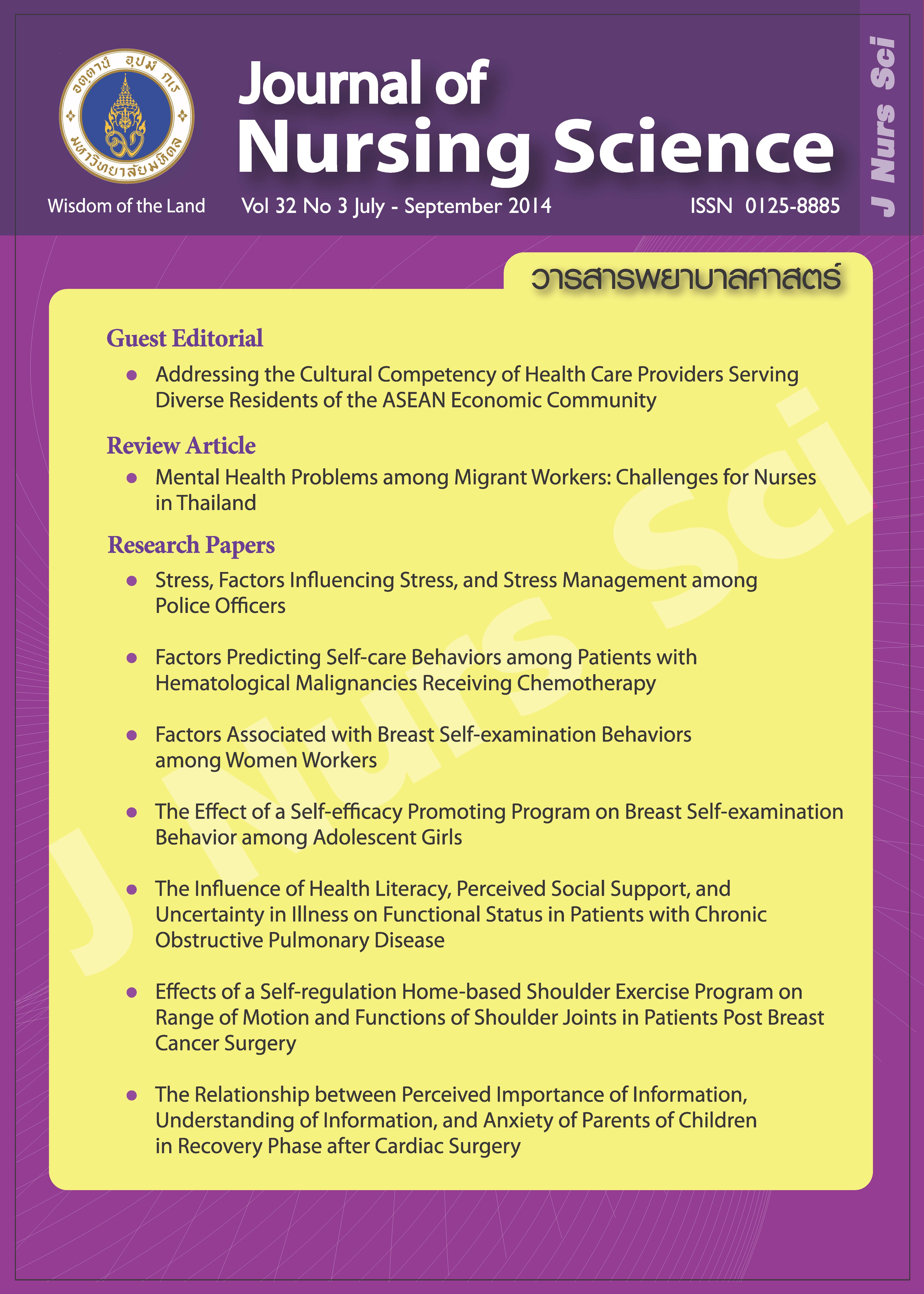Addressing the Cultural Competency of Health Care Providers Serving Diverse Residents of the ASEAN Economic Community
Main Article Content
Abstract
In 2015 the launching of the ASEAN Economic Community (AEC) will present unprecedented opportunities and challenges for the health care systems
of each of the 10 participating regional countries. The theoretical benefits of the economic integration of ASEAN countries on health care are substantial
including new funding to expand and improve existing services, cost savings associated with shared resources, and creation of innovative solutions to some of the region’ s most pressing health and health care concerns.
Despite the opportunities offered by the creation of the AEC, challenges in the provision of culturally appropriate health care services in response to the
diverse sociocultural experiences, religious ideologies, and health beliefs of patients from member states should be anticipated and addressed proactively. For example, immigrant status and the process of acculturation are unique sources of stress among immigrant populations and may markedly shape the experiences of migrants from AEC countries. In addition, experiences of discrimination based on membership in a stigmatized minority group (e.g., based on gender, sexual orientation, religion or country of origin) may have implications for the health and health outcomes among members of ASEAN communities who elect to live and work outside of their countries of origin.
Article Details
Copyright Notice: Nursing Science Journal of Thailand has exclusive rights to publish and distribute the manuscript and all contents therein. Without the journal’s permission, the dissemination of the manuscript in another journal or online, and the reproduction of the manuscript for non-educational purpose are prohibited.

Disclaimer: The opinion expressed and figures provided in this journal, NSJT, are the sole responsibility of the authors. The editorial board bears no responsibility in this regard.


